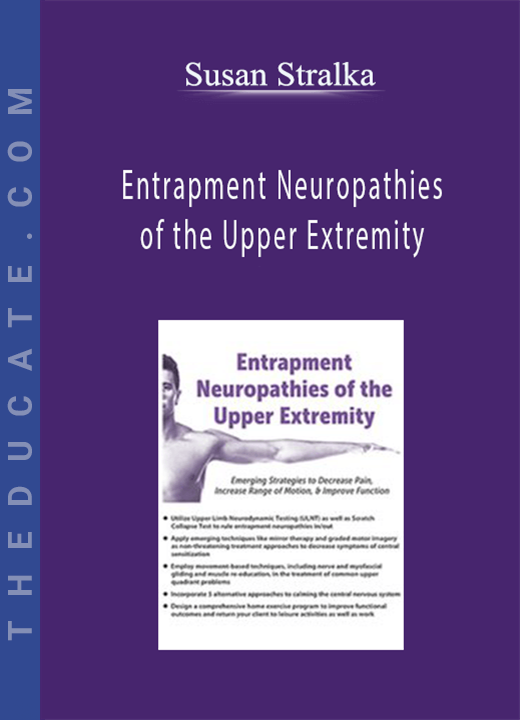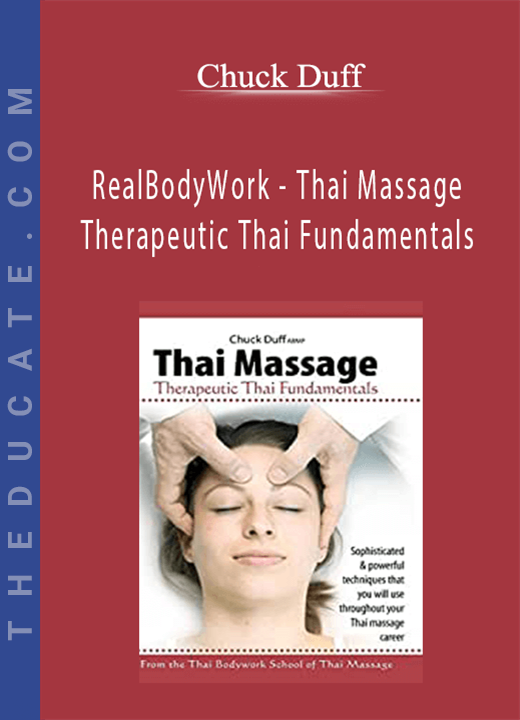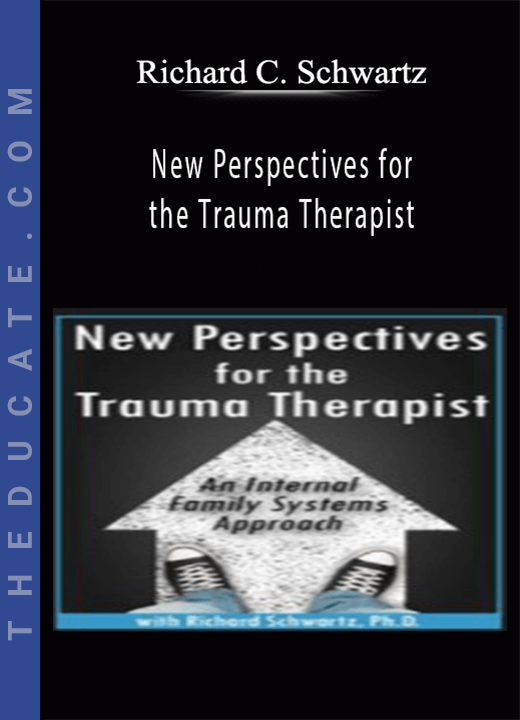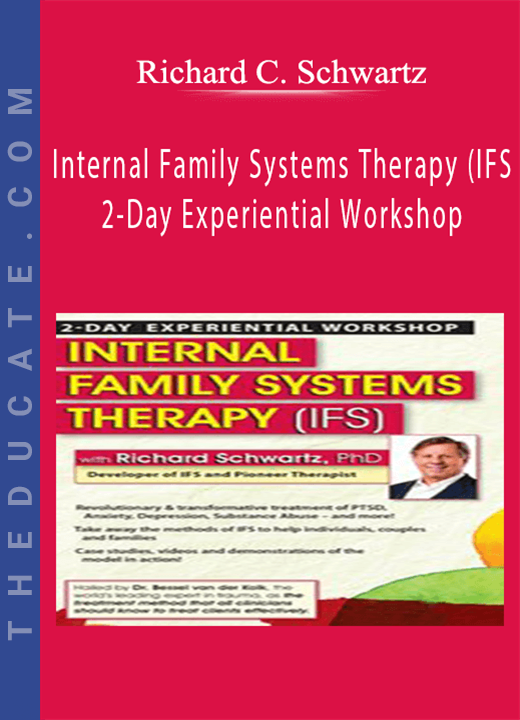Description

Entrapment Neuropathies of the Upper Extremity: Emerging Strategies to Decrease Pain, Increase Range of Motion, & Improve Function – Susan Stralka
Diagnosis and Treatment of Upper Extremity Neuropathies
It is often difficult to identify all structures causing upper extremity pain and dysfunction. Therapists must determine the source of the problem to provide the most effective treatment for the client. For many therapists, treating the peripheral symptoms is much easier than identifying and treating central sensitization – a condition of the nervous system that is associated with the development and maintenance of persistent symptoms. But what if there was a way to design a treatment program to assess and treat both peripheral symptoms and central sensitization?
This course provides the tools to do just that. Walk away with emerging, evidence-based assessment and treatment strategies for disorders of the upper extremity, from the cervical spine to the hand. To decipher whether entrapment neuropathies are at play, you’ll learn about and gain hands-on experience with using the Upper Limb Neurodynamic Testing (ULNT) and Scratch Collapse Test during lab. You will also gain 4 ways to identify central sensitization and 5 alternative, evidence-based approaches to calm the nervous system. Using mirror therapy, graded motor imagery, nerve and myofascial gliding, and muscle re-education, help your clients recover from debilitating pain and improve functionality as well as their quality of life.
- Explore the relationship of the neural system continuum and musculoskeletal problems
- Discover differential diagnosis procedures to use for problem solving and successful treatment of upper quadrant pain and dysfunction
- Examine Upper Limb Neurodynamic Testing (ULNT) and Scratch Collapse Test to rule in nerve pathologies including double crush
- Define pain mechanisms and ways to identify central sensitization
- Develop a sequential exercise program starting with addressing the symptoms
- Utilize mirror therapy and graded motor imagery along with the biopsychosocial approach to improve outcomes
ANATOMY AND PHYSIOLOGY
- The relationship of neurovascular and musculoskeletal problems—joints, ligaments, bone, muscle, and nerve
- Movement in the nervous system
DIFFERENTIAL DIAGNOSIS OF THE UPPER QUADRANT—NECK, SHOULDER, WRIST, AND HAND
- Degenerative cervical dysfunction
- Symptom identification
- Proximal vs. distal symptoms
- Cervical radiculopathy
- Shoulder pathology
- Tenosynovitis
UNDERSTANDING OF CONNECTIVE TISSUE, NEURAL RELATIONSHIP, AND MUSCLE IMBALANCE
- Pathophysiology of neural tissue
- Consequences of muscle imbalance
IDENTIFICATION OF NERVE COMPRESSION SITES
- Upper Limb Neurodynamics Testing (ULNT) and Scratch Collapse Test
- Classification of nerve compression injuries
DEMONSTRATION AND LAB—UPPER LIMB TENSION TESTING (ULTT)
TREATMENT STRATEGIES:
MOVEMENT-BASED MANAGEMENT
- Nerve gliding
- Muscle re-education
- Mirror Therapy and Graded Motor Imagery
- Ergonomic strategies
HOME EXERCISE PROGRAM






7 reviews for Entrapment Neuropathies of the Upper Extremity: Emerging Strategies to Decrease Pain, Increase Range of Motion, & Improve Function – Susan Stralka
There are no reviews yet.